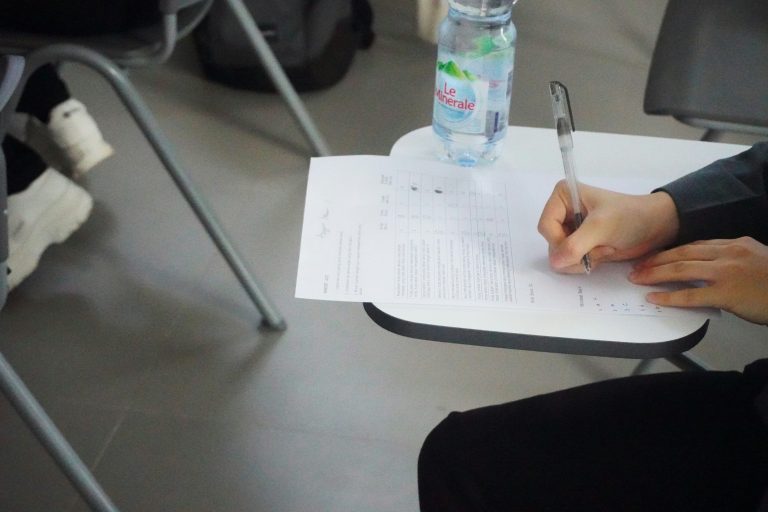Waiting for your A-level or GCSE results can be incredibly stressful. There’s pressure from all sides — social media, school, teachers, family — and often, from ourselves. You may have already made plans based on predicted grades, and ambitions for next year may feel like they hang in the balance.
So how do we manage the emotional ups and downs of waiting? What if results don’t turn out as expected? And how can parents and carers offer the right support?
Coping With The Wait:
1. Talk and listen
Bottling things up doesn’t help. Whether you’re a young person or someone supporting them, open, honest conversations make a huge difference.
It’s tempting to say, “Don’t worry! Everything will be fine” — but this can unintentionally dismiss how someone is really feeling. Instead, try naming the emotions: anxiety, fear of failure, uncertainty about the future. These feelings are completely normal (and expected when you’re waiting on results!).
By acknowledging them, we help ourselves and others feel seen and understood — creating space for reassurance, resilience, and self-belief.
2. Plan Healthy Distractions
When you’re waiting for something important, time can move painfully slowly. A good distraction doesn’t mean ignoring the issue — it simply gives the mind a break from overthinking.
Here are some helpful ideas:
- Go for walks or explore a new area
- Have a games night, film marathon or takeaway evening
- Meet friends for a meal, or invite them over
- Try something creative — baking, journalling, crafts
- Start a new book, podcast or series
Even small changes in environment can lift your mood. Just remember: everyone copes differently. Some people need quiet, others prefer company — both are okay.

3. Prepare for different outcomes
Sometimes exams don’t go to plan — and that’s okay. It doesn’t mean you’ve failed, and it doesn’t mean your future is ruined.
Doing a bit of research ahead of results day can help reduce anxiety:
- Know how and when to collect your results
- Understand the process for appeals or resits
- Look into alternatives: college, apprenticeships, gap years, vocational training
- Reach out to a teacher, careers adviser, or UCAS for guidance
Having a Plan B doesn’t mean you’re giving up on Plan A — it means you’re prepared, whatever happens.
4. Parents and carers: reassure and be present
If you’re supporting a young person, remind them regularly that exam results do not define their worth — and they don’t define your pride in them either.
That pressure to “not let anyone down” can feel overwhelming. Reassurance from a trusted adult helps to lift that burden.
And if they’re not ready to talk? Respect that — but make sure they know you’re there when they are.
It might seem obvious, but sometimes young people really do need to hear it again: they are loved and valued for who they are, not what they achieve.

On Results Day:
1. Don’t be alone
Whether you’re feeling hopeful or nervous, it helps to have someone by your side — someone who can offer comfort, perspective, or celebration.
2. Set your own boundaries
There’s often pressure to open results in front of others or post them online. But you don’t have to share anything you’re not ready to. Take your time. It’s your news.
3. Avoid comparisons
Social media can make it feel like everyone else is doing better. But other people’s success doesn’t take away from your own.
If scrolling doesn’t help, take a break — protect your peace.

If the Results Aren’t What You Expected:
When results day finally arrives, emotions can run high. If things don’t go to plan, it’s easy to feel like everything’s falling apart. But this is where reassurance, perspective, and practical steps really help.
1. Give yourself time to process
Disappointment is completely valid. Give emotions time to settle before rushing into next steps.
Whether that’s talking, walking, crying, or just sitting quietly — honour the time needed to process.
2. Explore the options
There are always other ways forward — even if Plan A doesn’t work out:
- Appeals or resits
- University clearing or alternative course choices
- Apprenticeships and vocational routes
- Taking a gap year to reassess or gain experience
Talk to teachers, advisers, or helplines. You haven’t hit a dead end — just a different route.
3. Focus on strengths, not just grades
Results show how someone performed on specific days — not who they are. They don’t reflect your values, your growth, or your potential. They don’t define you.
Resilience, kindness, creativity, curiosity — none of those fit on a results slip.
Remind yourself (or the young person you’re supporting) of everything else that makes them unique and valuable. Help them remember their strengths, their progress, and the qualities they have that no grade can capture.
We are all more important than tha grades we achieve.
Final Thoughts:
This time of year can feel overwhelming. There’s pressure, fear and uncertainty — but also hope, growth and new beginnings.
Whether your results are what you hoped for or not, the most important thing is this:
You are not defined by grades.
You are not alone.
There is always a way forward — even if the path looks different from what you imagined.
Author: Magdalena García
Clinical Psychologist and Psychotherapist





